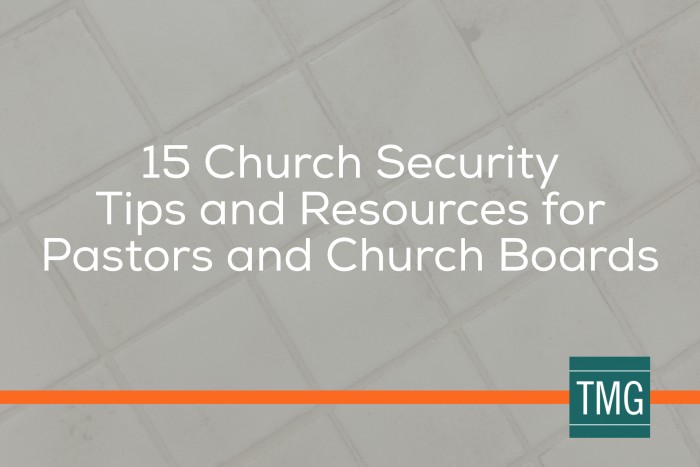Church security has risen to the forefront of our minds in recent years. From school shootings around the country to shootings in churches in Texas, South Carolina, and more–Americans are increasingly concerned about safety in public places.
We need a healthy balance between paranoia and avoidance that is characterized by vigilance and trust.
If you church security concerns you, you are not alone in the least. Many Christians and churches often ignore church security. Be sure your church’s vision team addresses church security as you pursue vision clarity and a strategic operations plan. Church security needs more attention to ensure we create safe spaces for adults and children to worship, learn, and grow as disciples around the country (and world!).
One concern I have, however, is that many people might stay “concerned” without taking concrete action steps to address their church’s security protocols (if any are in place). The last thing you want to do is ignore the security or safety gaps in your church…until it is too late.
At the same time, we don’t want to become a nation of paranoid people. We need a healthy balance between paranoia and avoidance that is characterized by vigilance and trust. We must remain as vigilant as possible to safeguard the lives of those entrusted to our care and leadership.
In our world today, it is unwise and potentially negligent for a church to operate without a church security plan. Aside from the potential legal and financial ramifications, we owe it to everyone to ensure that we prioritize safety (especially the safety of children). As you make plans for the days ahead, make sure anyone you consider for church vision consulting not only presents a solid plan for vision clarity but also collaborates with you to ensure you have a robust church security plan.
As you consider these church security tips and resources, make sure that you don’t allow yourself to think “we are okay” or “we have this covered.” The reality is that we can never be completely sure that everything is completely covered. We can make sure we greatly reduce the security risks by being proactive. My prayer is that you will make a security and safety audit a regular part of your church leadership by addressing the areas below, in addition to other things unique to your specific context.
15 Church Security Tips and Resources
for Pastors and Church Boards
1) Create a church security plan.
2) Install church video surveillance (inside and outside).
3) Never allow an adult in the Children’s Area without proper identification.
4) Make sure to have a plan for Sunday services, in the event of a shooter, fire or other incident.
5) Ask a local police officer to do a walk-through of your facilities and offer feedback.
The reality is that we can never be completely sure that everything is completely covered. We can make sure we greatly reduce the security risks by being proactive.
6) Ensure emergency lights are installed and tested around the entire campus.
7) Train all your leaders on how to respond to emergency situations.
8) Define an official spokesperson for the church.
9) Create public and private wireless networks that use different routers.
10) Designate someone “official” to patrol the parking lot regularly.
11) Don’t allow staff or volunteer leaders to work alone in the church building.
12) Test your security systems and routines at least annually.
13) Create a clear protocol for handling money. (Make sure people handle money in groups rather than alone.)
14) Get to know your local police, fire department, and paramedics.
15) Never assume everything is fine and doing well.
The list above provides some initial church security tips and resources for evaluating your church security systems. It is by no means exhaustive, but hopefully will give you some ideas to get started.
What would you add? What has been helpful for your church? What do you wish you would have done earlier (rather than later)?
—


